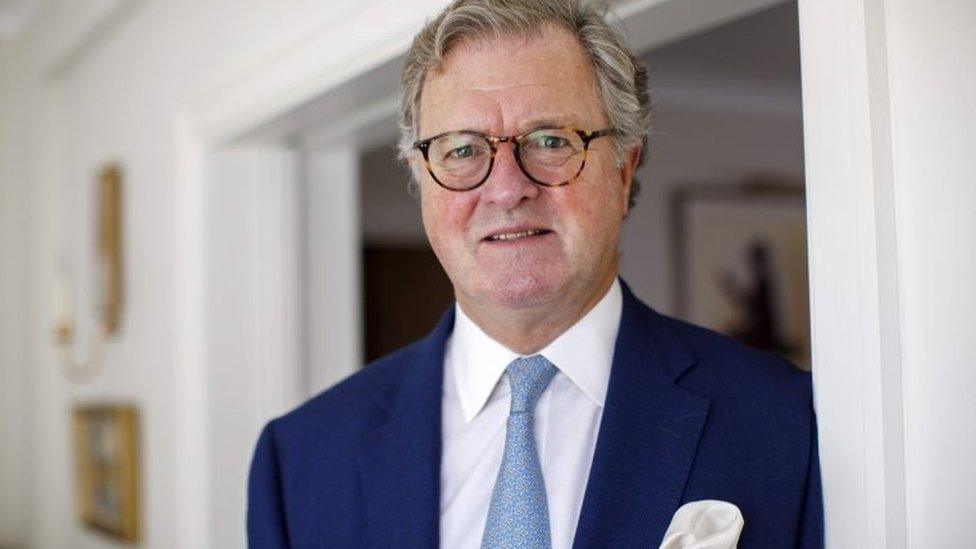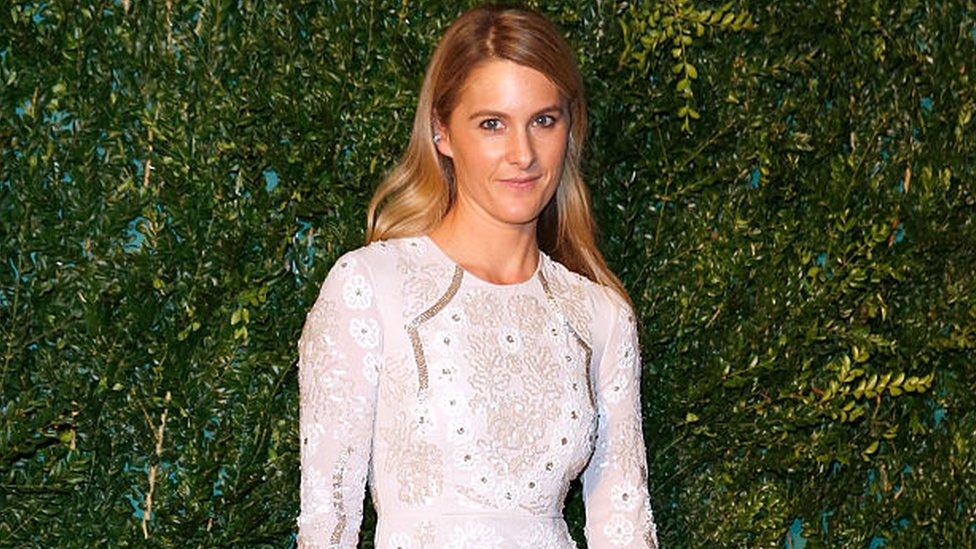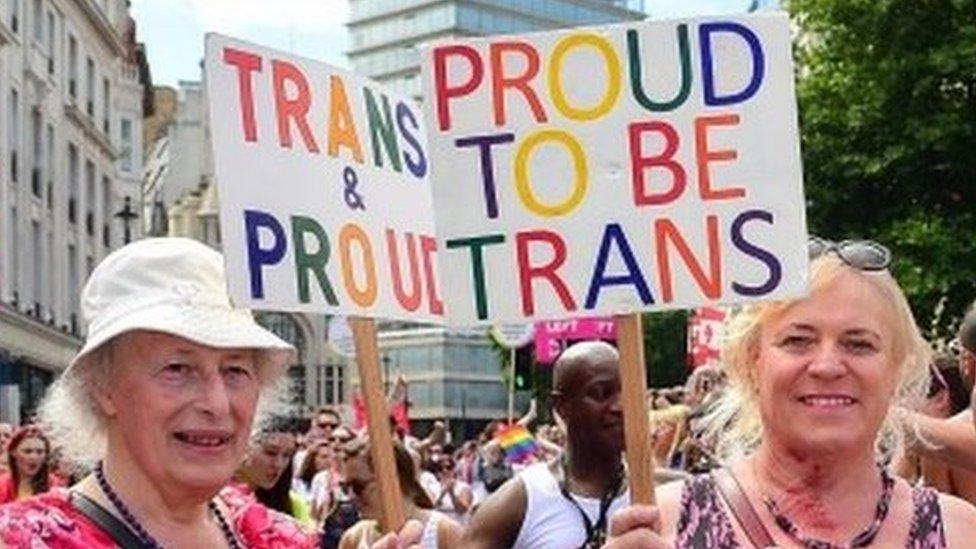Women could inherit if they change gender, says Earl
- Published

Countess Balfour, Lord Balfour and Lady Willa Franks at The Sugarplum Dinner, London, Nov 2017
The Fifth Earl of Balfour has suggested one of his daughters could inherit his title by taking advantage of proposed gender laws and declaring she is male.
In a letter to the Times, he said when he dies, his daughter could declare "there has always been a man screaming to get out of her female body".
Proposed law changes may allow a person to self-declare their chosen gender.
Primogeniture law states the Balfour title will go to Lord Balfour's brother, not any of his four daughters.
The sole reason they are not in line to inherit is because they are female.
"Surely the time has come when we can nominate which child we want to be our successor, regardless of their current, past or future gender," Lord Balfour, 68, wrote.
These days "daughters are a lot more empowered, they're better educated and a lot of them are very capable of looking after estates", he told BBC Radio 4's the World at One programme.
He suggested that proposed amendments to the Gender Recognition Act could offer a legal loophole for his eldest daughter, Lady Willa Franks.

Roderick Francis Arthur Balfour, the fifth Lord Balfour
Under current law, anyone who wants to legally change their gender in the UK has to apply for a Gender Recognition Certificate (GRC).
The law is traditionally used by trans men and women - not those seeking hereditary titles.
You must have lived for two years in your preferred gender and have a diagnosis of gender dysphoria - distress caused by a mismatch between biological sex and gender identity.
The government has suggested simplifying this process by letting individuals to self-declare the gender in which they choose to live, without the need for medical evidence or proof.
Some have said Lord Balfour's suggestion makes "a mockery out of transgender rights".
"It's the 21st Century and the law of primogeniture should be scrapped entirely, surely that's the correct course of action," trans woman Sarah Hodgson wrote on Twitter, external.
Allow X content?
This article contains content provided by X. We ask for your permission before anything is loaded, as they may be using cookies and other technologies. You may want to read X’s cookie policy, external and privacy policy, external before accepting. To view this content choose ‘accept and continue’.
Current law states that changing gender does "not affect the descent of any peerage, external".
However, new rules on royal succession have already come into force which remove male bias, meaning that Princess Charlotte is fourth in line to the throne and cannot be overtaken by any future younger brothers.
"It seems ridiculous that the Royal Family has changed its rules of succession, and yet that hasn't been applied to everyone else," Lord Balfour told the Daily Telegraph, external.

Lady Kinvara Balfour has called primogeniture 'archaic'
The Earl's peerage was was created in 1922 for the Conservative prime minister, Arthur Balfour.
Lord Balfour and Countess Balfour - eldest daughter of the 17th Duke of Norfolk - have four daughters; Willa, Kinvara, Maria and Candida.
The family home is Burpham Lodge, near Arundel, Sussex.
Lady Kinvara Balfour, a director and public speaker and the second eldest of the sisters, has previously called primogeniture "archaic" and "absolutely mad'.
"We are this bonkers little country that still has all these antiquated rules," she told Town & Country magazine in 2015, external.
'I simply believe that property and land should stay together and that a home should go to one person - the eldest born."
- Published31 July 2017

- Published24 July 2017
